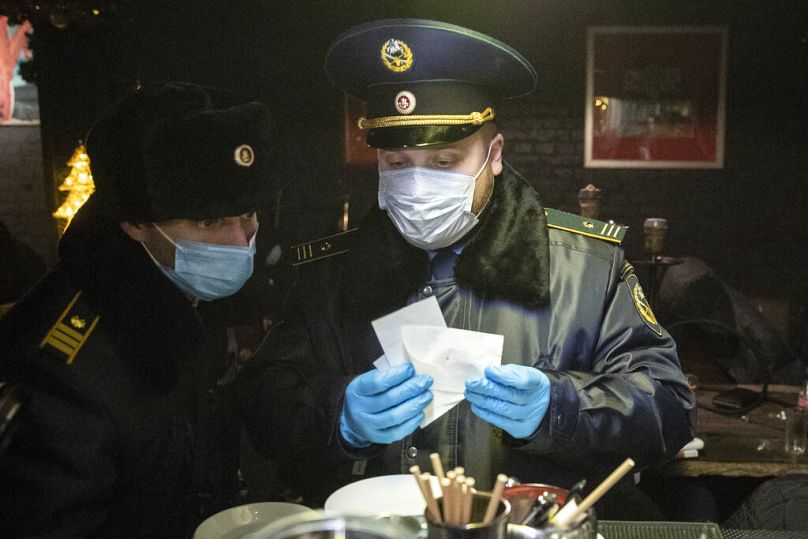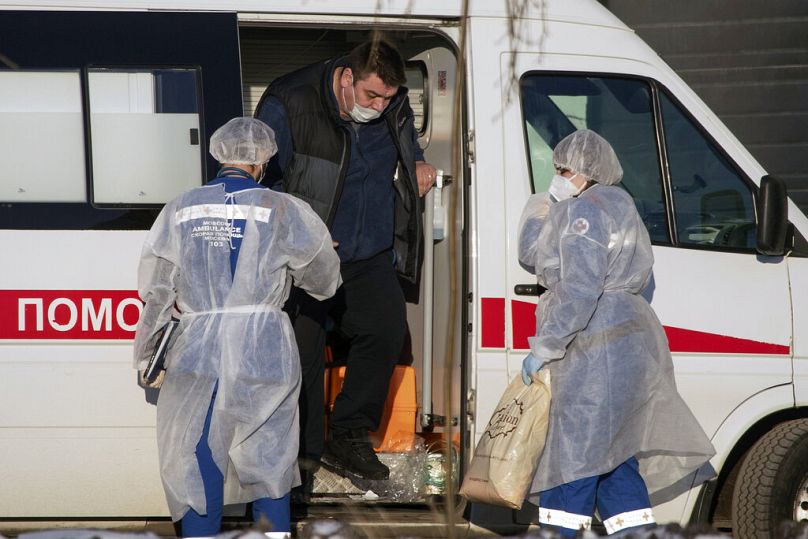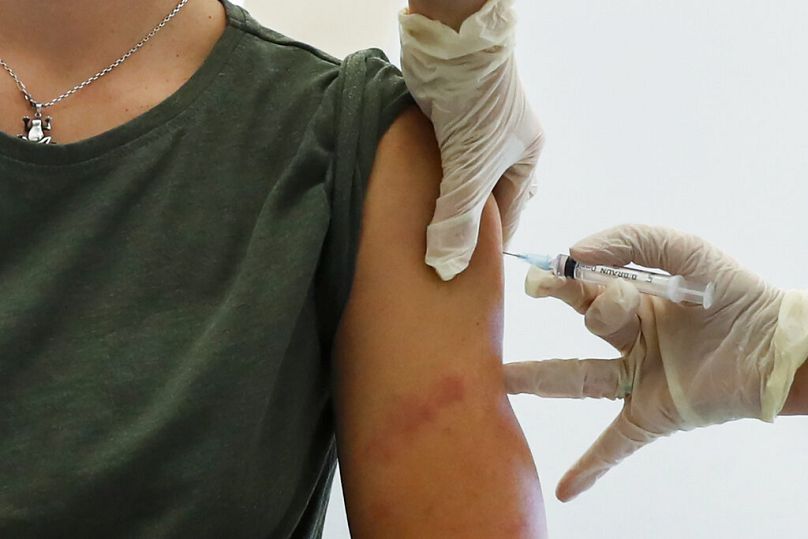Official figures from the Russian health authority say 55,265 people have died from COVID-19; however, the statistics agency has said this figure is more than three times higher.
Russia's coronavirus death toll is more than triple the official figures previously reported by health authorities, according to the country's statistics agency.
The number currently stands at 55,265 deaths from COVID-19, but the Rosstat federal state statistic service says the true figure is much, much higher, and reports 186,057 people dying with the disease.
This would mean Russia has the third worst death toll to the virus, behind that of the US and Brazil.
With more than 3 million reported infections, scientists have long believed that Russia's unusually low mortality rate is a sign of the nation downplaying the real cost of COVID-19.
It did not explain why on Monday the total had jumped more than three times over, but it is thought this is due to previously reported figures only including deaths where the virus was found to be a cause after a post-mortem.
Monday's figures, however, appear to include all coronavirus-related deaths.
This also comes after Rosstat said there had been an increase of 229,700 deaths from all causes between January and November in comparison to last year — the majority of which have been attributed to the virus.
"More than 81% of this increase in mortality over this period is due to COVID," said Deputy Prime Minister Tatiana Golikova, adding that autumn and winter months had seen deaths increase as COVID-19 and other illnesses spread co-morbidly.
More than 81 million cases of the disease have so far been recorded worldwide, with the global death toll also creeping ever closer to 2 million.
Across Europe, most countries are battling hard to take control of the winter wave and to stop the spread of a new, highly-transmissible, variant in its tracks. This has resulted in lockdowns, tighter restrictions and rolled-back Christmas celebrations.
Russia, meanwhile, has continued to resist a nationwide lockdown, although worsening situations in Moscow and St Petersburg have resulted in the closure of many leisure facilities.
October also marked Russia's single deadliest month in a decade, while local reports spoke of overflowing morgues amid spiking mortality. The nation of 144.5 million people is now, like the rest of Europe, pinning many of its hopes on a vaccine.
Russia was the first country to begin administering a vaccine for COVID-19 in early December, despite it not being internationally approved nor subject to the usual rigorous trialling.
Named Sputnik V, the vaccine is being prioritised for people in careers most-exposed to the virus, including health, education and social sectors.
The UK came next with administering the first internationally approved jab - the Pfizer/BioNTech vaccine - on December 8.
Over the weekend, the EU followed suit, rolling out the Pfizer/BioNTech solution to begin vaccinating the bloc's 450 million citizens.














